Engaging the European private sector in EU development cooperation and finance
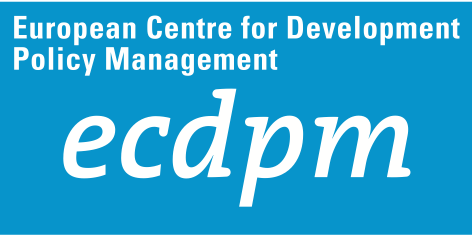
Donors have made private sector engagement in development a strategic priority, recognising the role it can play in development, and acknowledging that governments’ budget and capabilities will not be sufficient to achieve the SDGs. At the EU level, the private sector is expected to help deliver on the objectives of the Global Gateway strategy, based on a Team Europe approach.
This paper aims to shed light on the place of the European private sector in EU development cooperation and development finance, notwithstanding the fact that supporting the European private sector is not an end, but a means to foster more sustainable and impactful development in partner countries. It provides concrete recommendations for EU policymakers on how the European private sector engagement could be best articulated in the Global Gateway strategy to achieve development (economic and geostrategic) impacts.
EU-Uganda relations: friction, change, or business as usual?
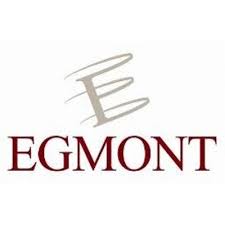
This brief analyses the multilayered frictions in the relations between the EU and Uganda. First, it shows how the funding of governance and human rights activities by the ‘West’ – and particularly the EU – has put the latter in the spotlight in Uganda, leading to an increasingly repressive response by the government – of which the suspension of the Democratic Governance Facility is the main example. Second, the briefing explains the EU’s limited reaction to governance transgressions by the Museveni regime through Uganda’s geopolitical importance, and because of donors’ internal institutional incentives. Third, this results in a piecemeal approach by the EU, which largely is the outcome of ad hoc responses to dramatic events, and compromises between a variety of European actors and incentives.
Is crowding out of private sector credit inhibiting Africa’s growth?
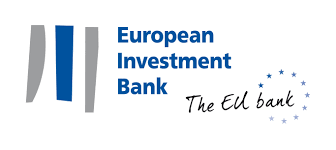
The increase in public debt across Africa due to the COVID-19 crisis intensified crowding out of credit to the private sector. As the economic recovery got underway, credit demand by the private sector picked up again in 2021, thus competing with government securities for funding. The analysis presented in this study confirms that crowding out has become more severe, but that timely policy support averted a credit crunch. Evidence of an increased sovereign-bank nexus highlights risks to macro-financial stability, especially as sovereign creditworthiness is deteriorating. Reducing excessive sovereign borrowing and strengthening countries’ public debt management and transparency will help to contain crowding-out effects. Domestic and international development finance institutions can support these efforts by catalysing private sector resources and providing technical assistance.
African Union-European Union cooperation on climate and energy: Discussing perspectives on hydrogen and just transitions

• Africa and the European Union (EU) have a shared interest in providing reliable and clean energy to their citizens, despite this being a rather heated moment of Africa-Europe relations in the area of climate and energy cooperation. Tensions concern the perceived protectionist slant of the European Green Deal, the EU’s “dash for gas” in Africa as part of its strategy to become more independent of Russian imports, and multilateral climate issues, such as at COP27 the balance between climate finance, loss and damage, and climate ambition.
• Hydrogen technologies have been prominent in discussions between the EU and African countries since the 2020 political push for hydrogen in Europe. In theory, cooperation on hydrogen may benefit both continents. Yet, techno-economic issues remain unsettled, and a framework for cooperation needs to be set up that includes both environmental and social criteria, economic benefits, as well as investments in industrialisation for producer regions.
The implications of global multi-crises for EU-Africa relations. In the food security domain

• Although food insecurity had been worsening in Africa well before Russia´s invasion of Ukraine, the war is triggering more attention and spurring international and European initiatives. Both Africa and the EU share the concern that actions are needed to support not only emergency responses, but also structural solutions for food insecurity in Africa.
• There is a general consensus that there are multiple causes and drivers of food insecurity, and that access to affordable finance to African countries is key to helping these countries address the economic and food crises. In this context, Team Europe and other international actors are pledging short- and long-term financial contributions.
• Some African discourses point at Europe’s response to Russia’s actions as a factor contributing to higher food and energy prices. This rhetoric suggests, in general, that global players – Europe included – are trying to take advantage of the current food crisis situation, fueling food as a tool of propaganda for both pro-Russian and anti-Russian positions.
Implications of COVID-19 and Russia’s war in Ukraine for EU-Africa relations – Development finance

• The current multi-crises context is gravely affecting the African continent (and especially Sub-Saharan Africa), and the EU must critically mobilise and expand the range of tools to support African initiatives for greater resilience, and sustainable and inclusive recovery and transformation.
• Some of Africa’s sources of external finance, such as foreign direct investment or trade, are following a downward trend, and debt pressure experienced by African countries is accentuating. It is thus crucial to boost the role and impact of African and European public development banks to mobilise sustainable and transformative investment. Africa and Europe should implement tradeinducing initiatives such as avoiding new barriers or supporting the African Continental Free Trade Area negotiation and implementation process. They should cooperate to explore innovative and tailored debt solutions together. This can include adopting common positions in multilateral fora and contemplating different debt-swap mechanisms. The European Union should collectively commit to speedily rechannelling 30% of their special drawing rights, through the International Monetary Fund and innovative leveraging mechanisms.
The EU-Africa peace and security partnership. Political and financial stumbling blocks and a few ways forward

• Peace and security is an area in which the EU-Africa partnership has been particularly effective – despite the political falling outs of recent years. The partners’ different responses to the Ukraine crisis, for example, highlights their differing views on the global order. Such differences should not be brushed aside, but rather should be the starting point for an honest discussion about the issues that the partnership faces.
• The EU is not Africa’s only peace and security partner. African leaders have been diversifying their partnerships for a long time now, including in the peace and security realm. This has in some cases limited or even entirely side-lined the effectiveness of Europe’s peace and security operations and role in regional conflicts, especially in the Sahel. To continue to be a relevant actor, Europe should acknowledge these new partnerships and the African interests that drive them, and ensure financial support for African-led peace and security operations.
The Global Gateway and the EU as a digital actor in Africa

At the European Union (EU) - African Union (AU) Summit in February 2022, the EU and its member states announced a series of major initiatives for Africa under its Global Gateway strategy, promising €150 billion in investments by 2027, including investments in the area of digital infrastructure. Driven by a combination of global geopolitics and an externalisation of domestic policy priorities, the EU’s approach to digital policy in its external action is evolving.
This paper explores the EU’s changing approach and argues that the Global Gateway strategy has the ingredients to help make Team Europe – including the EU, its member states, the European financial institutions and the private sector – a geopolitical actor in the digital area. However, this will require delivering impact at scale whilst offering an attractive narrative through its digital diplomacy that responds to partner countries’ needs. It will also need the buy-in of the European private sector and to take their concerns seriously.
Made by Africa
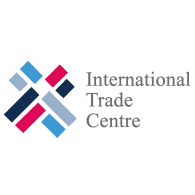
Pharmaceuticals, baby food, cotton clothing and cars are the four focus value chains of this report. Together they are poised to increase intraregional trade in Africa, reduce imports, diversify economies and create jobs for women and youth.
The sectors were selected from 94 promising value chains and reflect African goals to improve food security, health and tech skills – making them strategic choices for governments and investors. This report offers insights to improve trade in these and other sectors, based on extensive data analysis and interviews with 10,000 firms as well as business support organizations, industry experts and other stakeholders in Africa. It recommends actions to make the opportunities for growth and transformation across the African continent under the AfCFTA a reality.
Africa Industrialization Index 2022
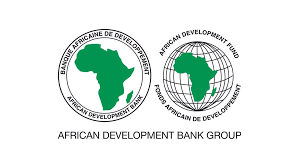
Industrialization is central to Africa’s development prospects. With its young labour force, abundant natural resources and fast-growing internal markets. Africa has the potential to become the next global frontier for industrial development. Africa’s development strategies, from the Sustainable Development Goals to Agenda 2063 and the African Union’s 2011 Action Plan for the Accelerated Industrial Development of Africa, all clearly identify industrial development as a foundation for inclusive growth, the creation of decent jobs and many other development goals. Industrialization is also a strategic priority for the African Development Bank (AfDB) under its Ten-Year Strategy (2013–2022), and one of the High 5s priorities. Under its Industrialize Africa strategy, the Bank is committed to helping African countries to accelerate their industrialization and unlock their economic potential.




